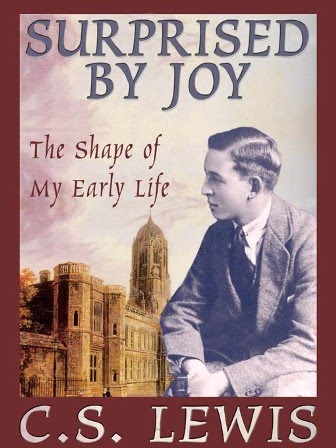
“In a sense,” C. S. Lewis wrote in his autobiography, “the central story of my life is about nothing else.” What was that “nothing else”? He continued, “It is that of an unsatisfied desire which is itself more desirable than any other satisfaction.” Now he comes to the point: “I call it Joy, which is here a technical term and must be sharply distinguished both from Happiness and from Pleasure.”
I presume that most people today would not see any difference in those words; yet to Lewis, there was a profound distinction to be made: both happiness and pleasure are ephemeral things that can be conjured up in various ways. As Lewis said elsewhere, “I didn’t go to religion to make me happy. I always knew a bottle of Port would do that.” Joy, he remarked, is something deeper: “Joy is never in our power and pleasure often is.” Further, “Joy is distinct not only from pleasure in general but even from aesthetic pleasure. It must have the stab, the pang, the inconsolable longing.”
Most of us, I trust, can grasp what Lewis means. He spent his early life trying to recapture those moments of joy/longing that would come to him periodically and without any effort on his part. It was a fruitless quest—until he realized that Joy is not the goal in itself; rather, it is the the result of coming to grips with the One who is the essence of Joy and who is the fulfillment of the quest.
At the very end of Surprised by Joy, Lewis summarizes what he eventually discovered.
But what, in conclusion, of Joy? For that, after all, is what the story has mainly been about. To tell you the truth, the subject has lost nearly all interest for me since I became a Christian.
I cannot, indeed, complain, like Wordsworth, that the visionary gleam has passed away. I believe (if the thing were at all worth recording) that the old stab, the old bittersweet, has come to me as often and as sharply since my conversion as at any time of my life whatever. But I now know that the experience, considered as a state of my own mind, had never had the kind of importance I once gave it.
It was valuable only as a pointer to something other and outer. While that other was in doubt, the pointer naturally loomed large in my thoughts.

Lewis then offers the correct perspective on the significance of that sensation of Joy.
“When we are lost in the woods the sight of a signpost is a great matter. He who first sees it cries, ‘Look!’ The whole party gathers round and stares. But when we have found the road and are passing signposts every few miles, we shall not stop and stare.” The signposts are appreciated, but they are not the destination. Joy has ceased to be the primary goal. “They will encourage us and we shall be grateful to the authority that set them up. But we shall not stop and stare, or not much; not on this road, though their pillars are of silver and their lettering of gold. ‘We would be at Jerusalem.'”
Joy—that stab of longing—has only one job: to lead us to the Source of real Joy.
